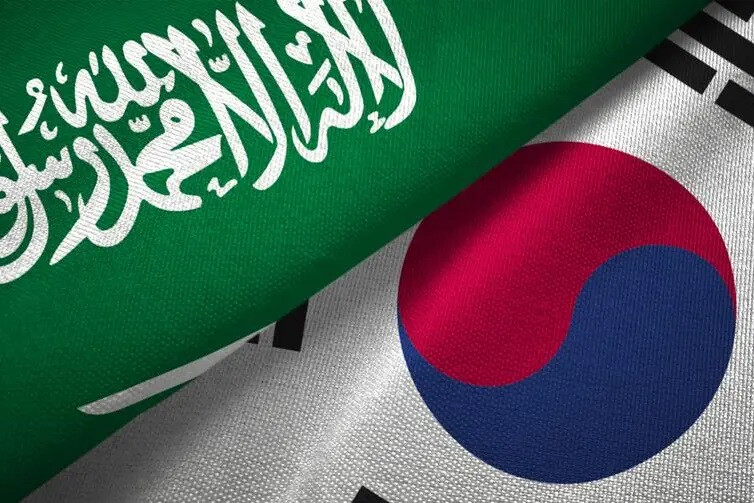
Seoul, South Korea - South Korea and Saudi Arabia, a Middle Eastern economic powerhouse and a key source of energy for the former, are forging a robust and multifaceted economic partnership aimed at securing future growth engines. Moving beyond traditional energy cooperation, the two nations are set to intensify collaboration in digital technology, advanced manufacturing, clean energy, large-scale special economic zone development, healthcare, and the cultural industry.
This strategic shift was underscored at the 'Korea-Saudi Arabia Business and Investment Forum' held in Seoul on May 9th. The forum, sponsored by the Ministry of Trade, Industry and Energy (MOTIE), served as a platform to explore South Korea's pivotal role and opportunities in the successful implementation of Saudi Arabia's ambitious national transformation strategy, 'Vision 2030'.
Launched in 2016, Saudi Arabia's 'Vision 2030' aims to diversify its economy away from oil dependence and foster high-value-added industries. In alignment with this vision, the South Korean government and its enterprises are strategically positioned to leverage their established cooperation in energy and plant construction to actively participate in Saudi Arabia's burgeoning advanced industries and new city development projects. This approach seeks to build a mutually beneficial economic partnership.
The recent forum facilitated in-depth discussions on collaborative ventures across a spectrum of high-growth potential sectors. These included the establishment of digital infrastructure, information technology (IT) and advanced manufacturing areas such as electric vehicles and the defense industry, future energy sources like renewable and hydrogen energy, large-scale special economic zone projects exemplified by NEOM City (encompassing sports and cultural districts, integrated residential communities, and tourism development near Riyadh), digital healthcare, pharmaceuticals, and sports. Notably, key companies from both nations engaged in fervent discussions to identify specific business opportunities and chart the course for sector-specific cooperation.
The Saudi Arabian delegation featured prominent figures from leading entities, including STC (Saudi Telecom Company), the national defense conglomerate SAMI (Saudi Arabian Military Industries), and Ceer, the Kingdom's first electric vehicle manufacturer, all demonstrating a strong commitment to collaboration with South Korean firms. On the South Korean side, approximately 100 companies with existing ties to Saudi Arabia or those exploring new ventures showcased significant interest by attending the forum.
Park Jong-won, Vice Minister for Trade at MOTIE, emphasized in his congratulatory remarks the imperative for "strengthening strategic cooperation with major emerging countries in the Global South, such as Saudi Arabia, to proactively address the rapidly changing international trade environment." He further pledged the government's commitment to "actively utilize various cooperative channels at the government level and expedite the ratification of the Korea-Gulf Cooperation Council (GCC) Free Trade Agreement (FTA) to further expand practical business cooperation between the two countries' companies."
The Korea-Saudi Arabia Business and Investment Forum is widely regarded as a pivotal moment, signaling a paradigm shift in the economic partnership between the two nations. By expanding cooperation beyond the traditional exchange of energy resources into high-potential future industries, both countries aim to secure new growth drivers and establish a win-win economic relationship.
Saudi Arabia's 'Vision 2030' project, which extends beyond mere economic development to encompass comprehensive social innovation and modernization, is expected to offer diverse participation opportunities for South Korean companies. South Korea's technological prowess and experience can play a crucial role in areas such as the establishment of digital infrastructure, a cornerstone of smart city construction, the development of renewable and hydrogen energy for eco-friendly energy transition, and the production of electric vehicles, a key component of the future mobility industry.
Furthermore, Saudi Arabia's ambitious large-scale special economic zone development projects present new market entry opportunities for South Korean construction and smart city-related companies. With their expertise in developing complex urban environments integrating sports, culture, residential, and tourism functions, South Korean firms are poised to become key partners in major projects like NEOM City and other significant special economic zones across the Kingdom.
The potential for collaboration in healthcare and the cultural industry is also substantial. South Korea's advanced digital healthcare technology and pharmaceutical industry, coupled with the global influence of K-culture, can contribute significantly to the development of related industries in Saudi Arabia. Given the large youth population in Saudi Arabia, cooperation in entertainment and sports is also expected to foster cultural exchange and enhance mutual understanding between the two nations.
The strong commitment to cooperation demonstrated by both governments and participating companies at this forum indicates a future of increasingly close economic ties and a developing future-oriented partnership between South Korea and Saudi Arabia. By forging new collaborative models in digital technology and future industries, beyond energy cooperation, both nations can secure sustainable growth engines and pursue mutual prosperity amidst the uncertainties of the 21st-century global economy.
[Copyright (c) Global Economic Times. All Rights Reserved.]



























